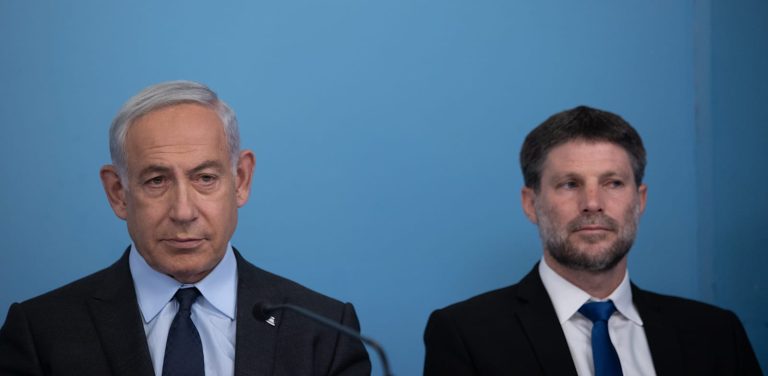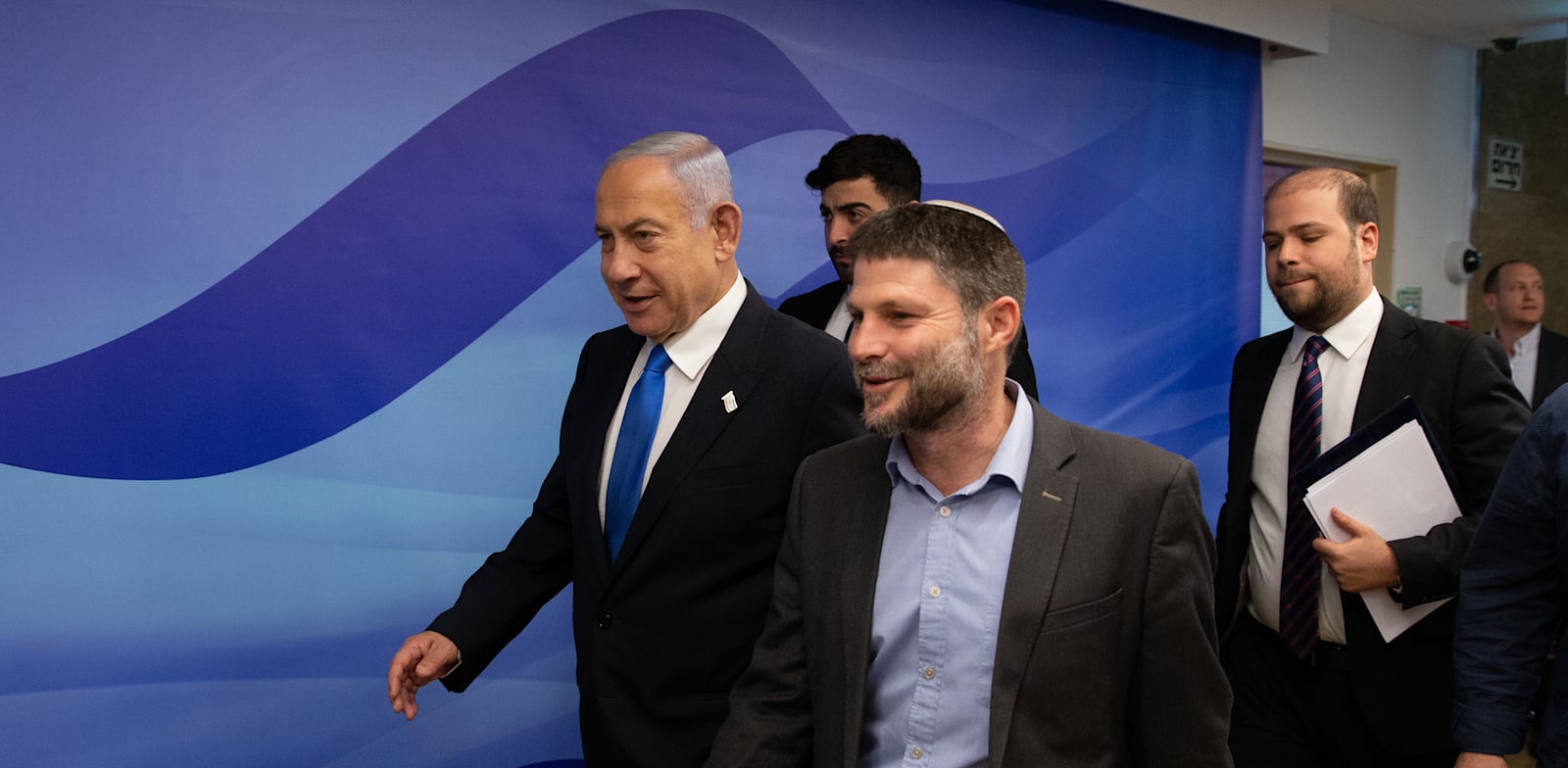Shortly after the outbreak of war, as it became clear that we were at the start of a campaign with enormous economic consequences, the government announced that it would revise the 2023-2024 budget to take this into account. But this week, following the government’s approval of the revised budget, there was an outcry. Benny Gantz and his party’s ministers voted against the budget, saying coalition funds, which had no connection to the war effort, had not been canceled. For their part, Prime Minister Benjamin Netanyahu and Finance Minister Bezalel Smotrich said the dispute was minor and there was no point in resolving it at this time. So, who is right ? We’ve taken three main points and provided context to help you judge.
What are “coalition funds”?
“It is not at all clear why this money is called coalition money” – Bezalel Smotrich, posted on Facebook.
This is perhaps the heart of the dispute and, to some extent, it is both a technical question and a question of principle. “Coalition funds” are funds allocated to a political entity from the state budget for purposes defined in coalition agreements. Allocation is done through “budget regulations,” and these are approved by the government, not Knesset legislation. Under Attorney General Directive 1.1801, coalition funds may only be part of the budget for the period stipulated in the coalition agreements, without being included in the budget base beyond that period. In other words, coalition funds are necessarily outside the budget framework and will not automatically be part of the following year’s budget.
At the same time, not all budget requests raised during coalition negotiations necessarily fall into the category of coalition funds. For example, if the police budget increases significantly following requests made by Minister of National Security Itamar Ben-Gvir, this does not mean that it would be correct to characterize this increase as “coalition funds”.
What is indisputable is that, under the current government, the amount of these funds has increased considerably. The budget approved before the war included NIS 5.8 billion in this category for 2023 and NIS 7.9 billion for 2024. In the past, under previous governments, the amounts were much lower.
After the outbreak of war, Smotrich announced that he would cut unspent coalition funds by 70% in the 2023 budget (1.6 billion shekels). In fact, for reasons that will not be detailed here, the approved reduction was only NIS 860 million.
Is 5 billion shekels a lot?
“(Coalition funds) represent approximately 1% of the total budget” – Benjamin Netanyahu, press release.
RELATED ARTICLES
Thus, after the reduction mentioned above, the coalition funds for 2023 will amount to 4.96 billion shekels. Is this a significant amount? Netanyahu and Smotrich present him as insignificant. “The political dispute represents more than one percent of the total budget,” a press release from the prime minister said. “We agree on 99 percent of the budget and disagree on only 1 percent,” Smotrich told Gantz, adding, “I call on you to rise to the occasion.”
Mathematically speaking, this statement is correct (in fact, it is 0.8% of the budget), but is this a fair way of putting things?
Tom Sadeh, a research assistant at the Aaron Institute for Economic Policy at Reichman University, commented on the point this week. The flexible part of the budget, he writes, is small. Most of the budget is made up of expenditure arising from legislation or agreements (salary agreements, debt service, etc.) and is not very flexible. What is the size of the flexible part? It’s hard to say exactly, but according to a rough calculation presented by Sadeh, it comes out to well under 10 percent.
Speaking to the « Globes », Sadeh explained that his estimate is based on certain indicators (such as population growth, salaries and price levels) which make it possible to estimate how much the rigid part of the budget has increased, from such that the growth beyond that can be attributed to the flexible component.
What matters here, of course, is not the precise figure, but the principle. When the extent of politicians’ influence on the total budget is very small anyway, this 1% clearly acquires great importance, and it is not correct to present the debate on this subject as minor or petty.
Professor Omer Moav of Reichman University and the University of Warwick points out another problematic aspect of this presentation. « People tend to think in terms of percentages, even when that’s just not reasonable, and when it comes to the state budget, that kind of thinking is a real mistake, » he says .
“When the state faces very large unforeseen expenses, it has to pay much more for each additional amount spent, in the form of an increase in the marginal cost of loans,” explains Moav. “The more loans Israel takes out, the higher the interest rate it will have to pay on the debt. In other words, the price of a loan increases as the total amount borrowed increases.”
Since we will bear the interest on these loans for a long time, even if the increase in expenses is not felt much immediately, it has a significant price in the long term.
Why is an ultra-Orthodox teacher discriminated against?
“I am in no way ready to discriminate against a teacher just because she is haredi” – Bezalel Smotrich, Radio Kol Hai.
One of the most controversial areas of the coalition’s funds is the increase in salaries of teachers in the haredi (ultra-Orthodox Jewish) education system. While many are calling for the salary increase to be abolished, the government presents an argument that seems valid: why should an ultra-Orthodox teacher receive a lower salary than other teachers?
Part of the explanation lies in “Ofek Hadash” (“New Horizon”). This is a reform that began in 2008 and was applied to teachers in the public and religious education systems – and improved their pay – but was not implemented in the ultra-Orthodox school system.
The government decided that ultra-Orthodox educational networks should join the program and that teachers’ salaries should therefore increase. But the reform also includes obligations. As Dr. Gilad Malach, director of the ultra-Orthodox program in Israel at the Israel Democracy Institute, explained to Globes, this involves, for example, reporting on the number of teachers employed, of the scope of their activities. jobs, etc. He argues that this is a lower level of control than that imposed on the state system, but that even these obligations have not yet been fulfilled.
Equal pay must also be linked to the content of the curriculum. Most haredi primary school students attend schools belonging to networks defined as recognized unofficial schools, which receive the entire budget from the Ministry of Education (except for gaps related to the Ofek Hadash program). As a result, they are obliged to teach the entire core curriculum.
Does this really happen? The quality of the supervision of common core studies (subjects such as mathematics, science, English) in these networks is the subject of numerous criticisms. Dr. Ariel Finkelstein of the Israel Democracy Institute, for example, has shown that the rate of fines imposed on Haredi school systems for failing to teach core curriculum subjects is low, « even though, with regard to English only, there are indications of a much higher proportion of establishments not teaching it at all. »
Published by Globes, Israel Business News – fr.globes.co.il – November 30, 2023.
© Copyright of Globes Publisher Itonut (1983) Ltd., 2023.




